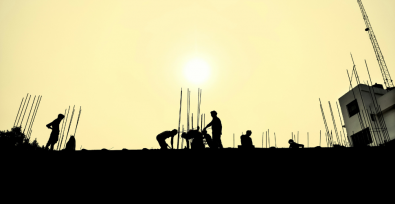The Fair Labor Standards Act (FLSA) prohibits the employment of youth under 18 in hazardous jobs, except for one industry that is particularly dangerous and the largest employer of children: agriculture.
Luz Vazquez Hernandez is just one of the many young children who started working in the fields at age 14, traveling for picking seasons in Michigan and Florida in extreme heat, with hazardous chemicals, under severe physical duress. Amid recent rollbacks of child labor laws across the U.S., the risks to young workers in agriculture are even more pressing.
Luz Vazquez Hernandez is one of many who began working in the fields at just 14, enduring extreme conditions.“It felt very normal to be there… my guess would be more than 50 percent of workers were children,” said Vazquez Hernandez to journalist Dawn Sentient in a report from El Observador.
Employing loopholes and exploiting children
Even though agriculture has very high injury and fatality rates compared to other sectors, the industry is filled with loopholes that make it extremely difficult to regulate. One systemic cause of these loopholes that are routinely exploited is that child labor protections for hazardous agricultural jobs have not been updated in over 50 years.
While the age requirement to work in agriculture is technically 16, Sentient reports that,
Even this lower limit for agriculture doesn’t stop large companies from illegally employing kids well below this age limit; Vazquez Hernandez says that as long as you look older, you can pass by scrutiny to find work.
Accidents are bound to happen when young kids work with dangerous equipment and they have, sometimes resulting in death.
Additionally, farm lobbyists have historically opposed reforms creating a significant obstacle in strengthening child labor laws in the sector, often using misinformation campaigns to portray regulations as threats to family farms. For example, one of the rules put forth to protect child workers was that kids under 16 should not be allowed to operate power-driven equipment. But as Reid Maki of Child Labor Coalition states,
“The way that the farm lobby characterized the rule was, oh, ‘the rules prohibit power driven machinery. So that means if a teenager on a farm wants to use a flashlight, they won’t be allowed to,’ they exaggerated the impact and said the regulations would kill the family farm.”
Pressure from farming groups worked. The Obama administration released these proposed rules very close to the election, which ended up making them quite politicized. As a result, the administration pulled the rules.
“So the rules officially died in 2011 or 2012. And ever since then, we have been trying to crack that door open again, because we really feel that the Department of Labor has an obligation to protect kids from known dangers,” Maki says.
Holding corporations accountable in a surge of weakening child labor laws
Efforts to strengthen child labor protections are challenged by state-level initiatives to weaken them. Since 2021, 28 states have introduced bills reducing restrictions, with half enacting them, such as Iowa’s law permitting 14-year-olds to work night shifts in meat plants.
Critics argue that such laws exacerbate exploitation and harm, especially of immigrant children like Marcos Cux, a 14-year-old migrant worker who shredded his arm at Perdue’s Virginia facility. Or Duvan Robert Thomas Pérez, a 16-year-old boy from Guatemala, who died after being pulled into a machine at a Mar-Jac poultry plant in Mississippi.
Additionally, big corporations like Tyson Foods and Purdue displace liability using subcontractors who employ the children.
“Employers say, ‘oh well, we don’t know about what this other company [does]’ and, ultimately, there’s a legal responsibility or moral responsibility to take responsibility within their supply chain,” a DOL spokesperson said.
Vazquez Hernandez, who is now at Michigan State University studying Public Policy and an advocate for farmworker protections, says that “after years of seeing my parents toil in the fields and working beside them, I feel the need to be an advocate for my community.”
We stand with Luz Vazquez Hernandez and fellow advocates in demanding that children are protected in every sector, including agriculture. We must close the loopholes and end the weakening of child labor laws so that children in the workforce are not at risk of exploitation. Join us by signing the petition.







Freedom United is interested in hearing from our community and welcomes relevant, informed comments, advice, and insights that advance the conversation around our campaigns and advocacy. We value inclusivity and respect within our community. To be approved, your comments should be civil.
It’s likely that their families like the kids to be working, low education people often have no interest in education for their kids – they prefer the extra cash those kids can bring in ! When you are not too sure how to pay for those kid’s needs anyway, it would make much more sense to have the extra dollars even if they know their kids are a bit young for this work ! Being on that raw level of life is no fun for anybody !